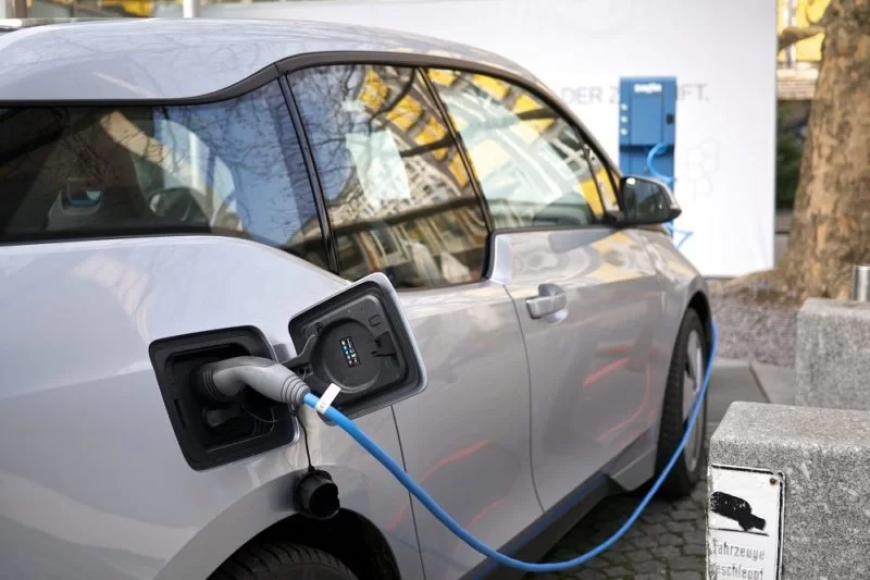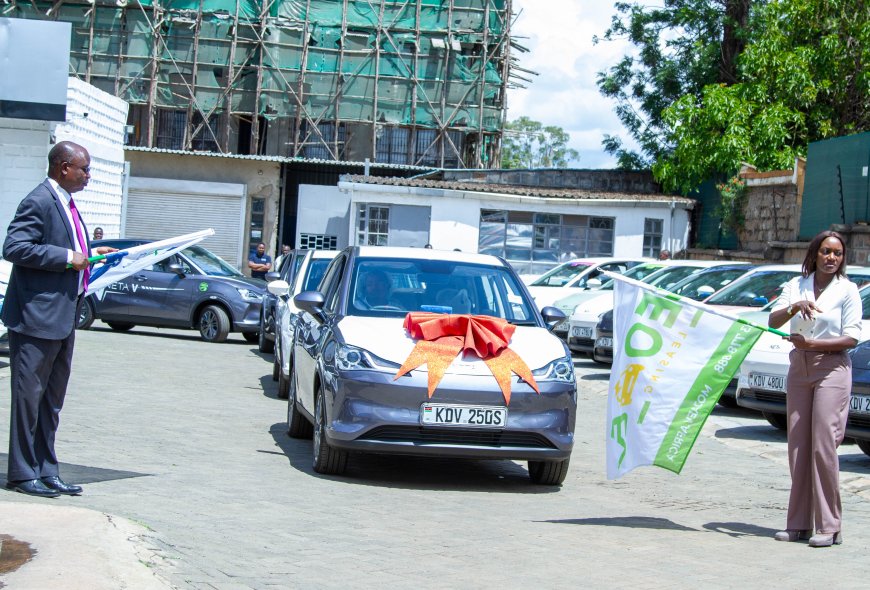30 New Electric Vehicles Hit Kenyan Roads as Green Transport Gains Momentum
The move comes as competition in the clean-mobility space intensifies, with fleet operators, insurers, and ride-hailing partners now rushing to stake their ground.


MojaEV rolled out one of Kenya’s largest electric vehicle batches on Tuesday, November 18, handing over 30 new units in a push that signals just how fast the country’s EV scene is heating up.
The move comes as competition in the clean-mobility space intensifies, with fleet operators, insurers, and ride-hailing partners now rushing to stake their ground.
Sales Director Achieng Anam told attendees the shift is already in motion, not some distant dream. “Today’s milestone demonstrates that electric mobility is no longer a future concept; it is happening now, at scale, and making real impact for our drivers, businesses, and communities,” she said.
GA Insurance, one of the sector’s early backers, used the event to double down on its stake in the industry. Marketing Executive Collins Amugune said, “Our partnership with MojaEV ensures that early adopters have access to dependable insurance solutions that match the unique needs of electric vehicle owners.”

Fleet operators also signaled confidence in the technology. County Bus Services Limited’s Sylvia Saita, after receiving five Neta EVs, said the shift is already paying off.
“The Neta EV offers exceptional cost savings and reliability for fleet owners. This investment strengthens our business and supports our commitment to clean public transport," Saita added.
CBS Director Dr. Okuthe added, “CBS embraces green technology wholeheartedly. We are excited to be part of the movement shaping the future of transport in Kenya.”
The company also teased a new model — the Neta Light — designed specifically for African roads and taxi work, with a price tag meant to pull more drivers into the EV market.
MojaEV now has more than 100 EVs on Kenyan roads and is leaning on partnerships with taxi groups, SACCOs, ride-hailing platforms like Uber and Bolt, and financial institutions to accelerate the country’s shift to electric transport.
Kenya’s electric-vehicle (EV) market is surging. By the end of 2024, the country had around 5,294 registered EVs, a 41 percent jump from the previous year.
Much of that growth is driven by electric motorcycles, which continue to dominate EV registrations, with nearly 4,900 of the new additions in 2024 being two-wheelers.
On the electricity side, EVs consumed 1.80 GWh under Kenya’s special e-mobility tariff in 2024 — a massive spike that reflects growing adoption across both private users and commercial fleets.
The government has also pushed out several incentives to accelerate the shift, including cutting excise duty on EVs from 20 percent to 10 percent, removing VAT on fully electric cars, and introducing an e-mobility tariff that makes charging cheaper than standard power rates.
Charging infrastructure is expanding, though still lagging behind demand, especially outside Nairobi and other urban centres.
Despite that gap, momentum is clearly building. Kenya’s long-term strategy — including targets under its National Energy Efficiency Plan — aims for at least 5 percent of all vehicle imports each year to be electric. With fleets, boda riders, and taxi operators increasingly buying in, the country’s EV curve is rising faster than ever.

admin Oct 26, 2023 0
admin Mar 27, 2023 0
admin Apr 27, 2023 0
This site uses cookies. By continuing to browse the site you are agreeing to our use of cookies.